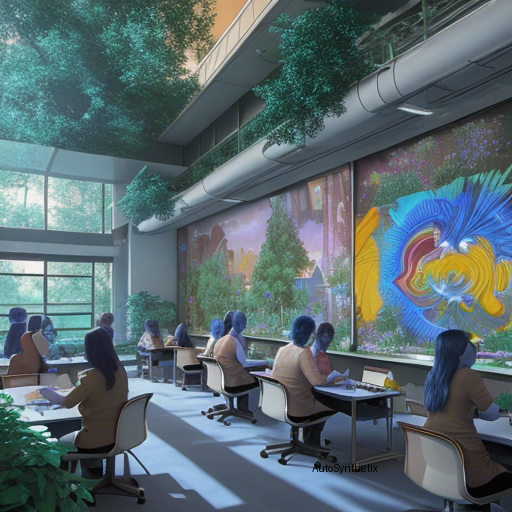In today's rapidly evolving technological landscape, the intersection between Artificial Intelligence (AI), education, and human development demands constant examination. A groundbreaking research initiative spearheaded by Siyu Zhao et al., published under the auspices of arXiv, delves deep into how Large Language Models (LLMs)-infused Project-Based Learning (PBL) environments could reshape modern pedagogy - instilling innovative thinking within children while navigating the intricate challenges associated with traditional PBL methods.
The team embarked upon a twofold journey - first, they engaged in an initial explorative study featuring twelve Middle School participants, meticulously identifying critical design factors pertinent to incorporating LLMs into PBL frameworks. Subsequently, these insights were applied towards designing a comprehensive, 48-hour long, collaboratively crafted experience for thirty-one additional Middle School pupils. The overarching goal was simple yet profound; unleashing the transformational power of AI in cultivating imaginativeness amongst younger generations.
Upon completion of this ambitious endeavor, several noteworthy observations came forth. Firstly, the integration of LLMs proved beneficial across multiple stages of the PBL process - sparking a new era where machines augment rather than replace human ingenuity. Secondly, although opinions diverged concerning LLM utilization, the overall sentiment encompassed a blend of enthusiasm and apprehension - reflective of humanity's ongoing love affair with progress tethered against its inherent fear of the unknown.
This pivotal juncture in the evolution of educational practices invites us to explore the myriad challenges accompanying the amalgamation of advanced technologies like LLMs with conventional teaching strategies. As educators, parents, policymakers, and technologists, we grapple with striking the perfect balance between preserving age-old wisdom imparted via personal interaction, whilst embracing cutting-edge innovations capable of revolutionizing the way knowledge is acquired, shared, and created. In essence, the future lies in harmoniously blending the best elements of humankind's collective intellect, alongside the astounding capabilities offered by AI systems such as LLMs.
By illuminating pathways towards intertwining AI prowess with cherished traditions of experiential learning, initiatives like those championed by Zhao et al. serve as a rallying cry for academicians, industry leaders, and visionaries worldwide. Their efforts herald a call to action, urging continued dialogue surrounding the responsible implementation of generative AI tools in molding tomorrow's generation - one infinitely curious, creatively agile, and primed to thrive amidst the ever-accelerating pace of innovation.
References: [1] Bauer, T. J., & Elmore, R. F. (Eds.). (1975). Project Method Versus Traditional Instruction: An Analysis of Effects on Student Academic Performance. Teachers College Record, 76(Suppl.), S1–S161. https://doi.org/10.2307/1100252 [2] Barron, B. K. (2004). Project-based learning: Theory, research, and issues. Educational Psychologist, 39(2), 75–86. https://doi.org/10.1080/00461520409592315 [3] Jonassen, D. I., Beitzel, L. E., DiMarino, C., Kolodziejski, N., Scanlon, V., Wigginton, J. F., ... Woodruff, A. K. (1994). Authentic Contexts in Project-Oriented Curriculum Development. Journal of Educational Computing Research, 11(4), 33–52. https://doi.org/10.1177/074205ISTobaccoControlJournalofAustralasia.au.edu/content/jecr/11/4/33.full.pdf+html [4] Voogt, J., & Vermetten, P. (2005). Active Learners, Engaging Tasks, Supportive Environment, Expert Coaching, Public Product, Reflection—A Model For Understanding Project Based Learning. British Journal of Educational Technology, 36(3), 345–358. https://doi.org/10.1111/j.1467-8535.2005.tb00276.x
Source arXiv: http://arxiv.org/abs/2403.16159v2
